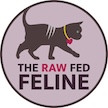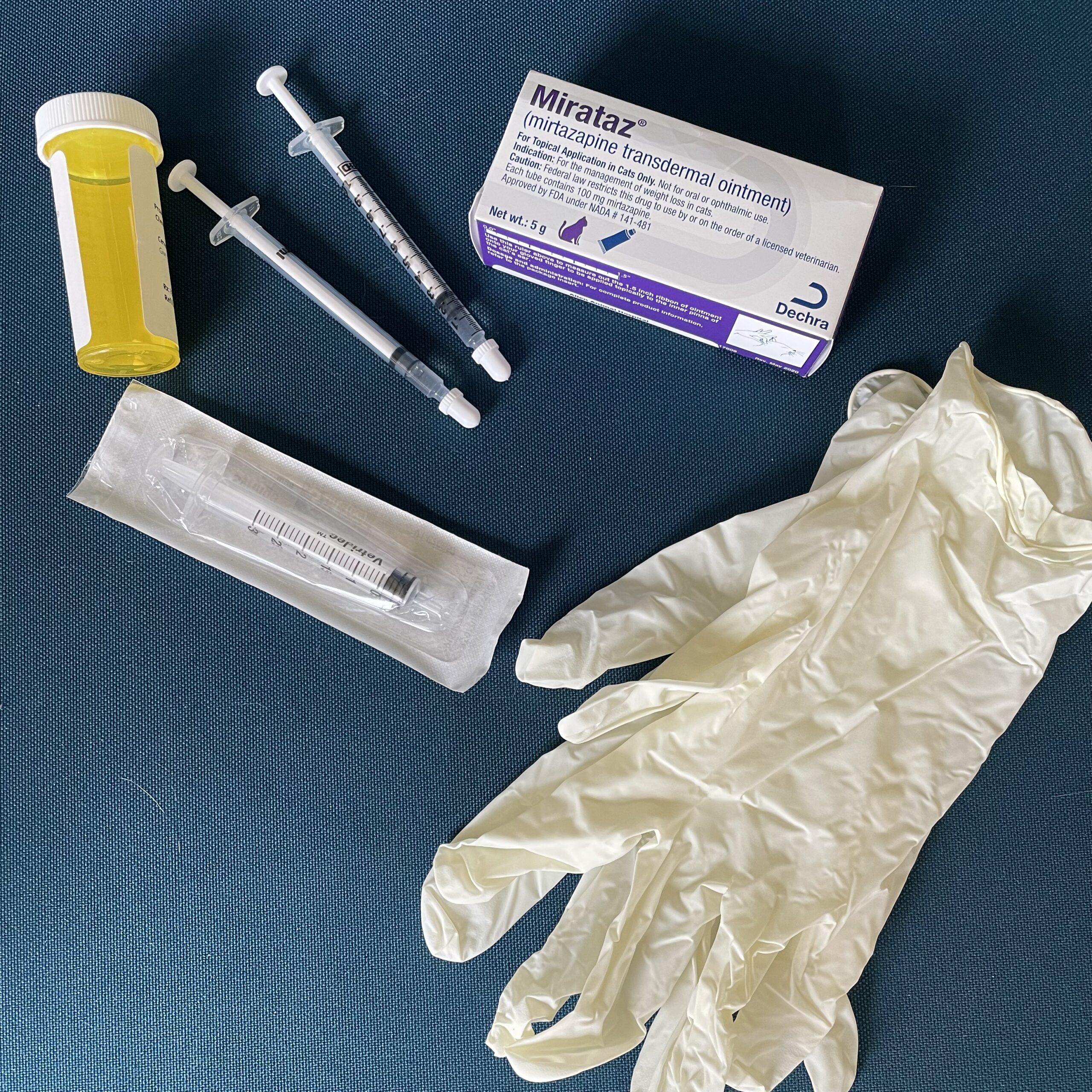What do you look for in a vet when you are a raw feeder? This can be a controversial topic, but I also think it’s one that we can agree needs to be talked about more. There are numerous things to consider, so let’s get started.
First of all, veterinarians are an essential part of your cat care team. Even if your cat is otherwise healthy, vets provide wellness exams, spay and neutering services, dental care, and titers/vaccinations. When our cats are sick, they provide diagnostics, x-rays, blood work, surgery, prescribe medications, etc. When our cats reach end of life stages, they help us make the most difficult of decisions. If you have a cat, you need a veterinarian.
But how much do you share about your cat’s diet with your vet? Especially if you are a raw feeder? What should you look for in a vet when you are a raw feeder?
Vets and raw feeding
Unfortunately, many veterinarians are discouraging of feeding a raw diet. This can be for a very good and important reason. Vets will be the first ones to see the negative effects of feeding grossly imbalanced diets.
But there are other outside influences on veterinarians about food and diet: the American Veterinary Medical Association (AVMA) and pet food companies.
Many vets in the United States adopt an anti-raw stance because the AVMA is firmly against raw feeding. Shockingly, the AVMA is the only medical organization that discourages feeding whole fresh foods and encourages feeding an ultra processed diet. Seriously??!!
There is a massive disconnect between what vets learn regarding feline physiology and biology in school with what foods they recommend in their practice. Sadly, pet food companies have a large influence when it comes to American veterinary schools. So unless vets seek out additional training, they typically receive limited and biased instruction on nutrition through their veterinary program.
I like to believe that the tide is changing though. There is increasing awareness about the importance of fresh foods and the issues with highly processed ones in human nutrition, which trickles down to animal nutrition. And there are some vets who are open to, and even supportive of, raw feeding.
What to look for
You can start with the website biographies of the vets at a practice that you are considering. I personally look for ones who seem to be more cat oriented as so many vets focus on dogs. The most recent local practice I checked out had 3 vets, one of them was a cat guardian herself. (The other two only had dogs). She also listed nutrition as a professional interest of hers.
An option when you are looking for a new vet is to “interview” potential offices beforehand. There are some offices that will not work with clients who feed a raw diet. You can call the office and ask if they have any restrictive policies re: raw fed animals. If they do, then that office is not going to be a good fit, although you may not have other options. But then at least you know this before going in. If they do not, you can ask the front desk staff if any of the vets have other clients who feed raw or who would be open to it. Front desk staff pretty much know everything that goes on in a practice.
other options
If you have any cat only vet practices near you, I would definitely check them out. Even if they don’t love that you are feeding raw, they are specialized in feline health issues and treatments. And for cats who are scared of dogs, it can be helpful in mitigating the stress of the experience.
A veterinary clinic that engages in Fear Free practices is a definite plus.
Holistic or integrative veterinarians may be another option to consider. Some of these practices also provide traditional veterinary services and some do not. They may be more open to raw feeding and emphasize nutrition more in general. You can check to see if any are available to you here.
However, you may live where you don’t have many options. In some communities there is only one vet practice available for miles around.
bottom line
I think ultimately what you want to look for is to be able to have a mutually respectful relationship: respect for the vet’s medical expertise and respect for your choice of diet for your cat.
What to share
There is no one right answer regarding what to share about your cat’s diet with your vet. It is up to you because at the end of the day, you are responsible for what you feed your cat. No one else.
Here are some possible approaches for sharing about your cat’s diet:
1. You may choose to not discuss diet with your vet. Many vets won’t even ask about what you feed your cat. As I have been meeting potential new vets for Hazel, I am shocked by how many don’t ask this question. Some people utilize their vet for medical issues only and don’t discuss diet. If they have trust in their vet otherwise, then this can work for some people and their cats.
This approach is often similar to one’s relationship with their medical provider. Medical doctors may offer some lifestyle suggestions, but they are not nutritionists and we don’t expect them to be. Yet, there is this idea or expectation that our vets should function as nutritionists. This makes no sense to me because veterinarians already have to be knowledgeable about numerous different species of animals. They are expected to be general practitioners, surgeons, allergists, cardiac specialists, pulmonary specialists, gastrointestinal specialists, etc., for different species! To expect them to be nutritionists on top of all of that seems grossly unfair.
2. You might decide to “test the waters” gradually and ask what your vet’s opinions are about feline nutrition, moisture rich food, and raw feeding in increments. You can ask further questions or share your personal choices based on your comfort level with your vet’s responses.
3. You may elect to share what you feed your cat and learn your vet’s stance in the moment. Some raw feeders do this after the vet has commented on how healthy their cat is; how their coat condition and weight are amazing. You will want to be prepared to discuss your cat’s diet in some detail to address any of your vet’s concerns (more on that below).

Addressing your vet’s concerns
The most common concerns are usually making sure the diet is nutritionally balanced and food safety.
A veterinarian may be more receptive if you can share the nutritional information about the raw food. One piece of information that vets are usually interested in is what guidelines the diet is based on. Some vets will be more open if you:
~use a completer that meets AAFCO minimums,
~feed a commercial frozen or freeze dried raw food that meets AAFCO mins,
~follow a recipe formulated to NRC values,
~demonstrate that you follow prey model raw ratios and address nutrient gaps.
If the same nutritional guidelines met by the dry and canned foods are also met by the raw foods, the worry about nutritional deficiencies is a moot point.
Food safety: this is a strange one to me since many people eat meat. They buy raw meat, freeze it, thaw it, and handle it in their kitchens. Yet no one is concerned in this situation. We are not eating the raw food we prepare for our cats, nor are we licking our fingers as we make it, or leaving myoglobin on our kitchen counters! You can read more about feeding raw food safely here.
When it comes to our cats and food safety, they are literally designed to eat raw food. And they are extremely adept at knowing when meat is “off” through their highly discerning sense of smell. This helps protect them in the wild from getting sick. Your cat won’t eat meat that is bad.
Respect
A critical aspect of the relationship with your vet is respect. Ideally, there should be a sense of respect for both parties involved. As I shared above, to me this means respect for the vet’s medical expertise and respect for your choice of diet for your cat.
A vet that belittles or shames their clients if they don’t agree with them is not a great vet to work with, IMHO. Vets are under extreme pressure and have to deal with heartbreaking situations and frustrating people. I admire how much vets truly love animals, and also, they should to be able to communicate respectfully with the human in the equation as well.
I think having a vet that will listen, even if they don’t agree, and who can offer their dissenting professional opinion in a respectful manner is important. And of course, the same standard holds true for us, the cat parent. Communicating with respect for our vet and their profession is key in having a working relationship with them. I think it also helps to keep in mind that both the vet and the cat parent want what is best for the cat.
Responsibility is yours
It can be really hard to disagree with your vet. But ultimately, it is YOUR decision about what you feed your cat. If you have a respectful working relationship and the vet doesn’t blindly blame the raw food for everything that your cat comes in for, and you trust their medical skills, then you may have to agree to disagree with your vet when it comes to your cat’s diet. And if you are lucky enough to have a vet who is supportive of raw feeding, then hold onto them!



2 responses to “What to Look for in a Vet When Raw Feeding”
Thank you for this!
My pleasure!!